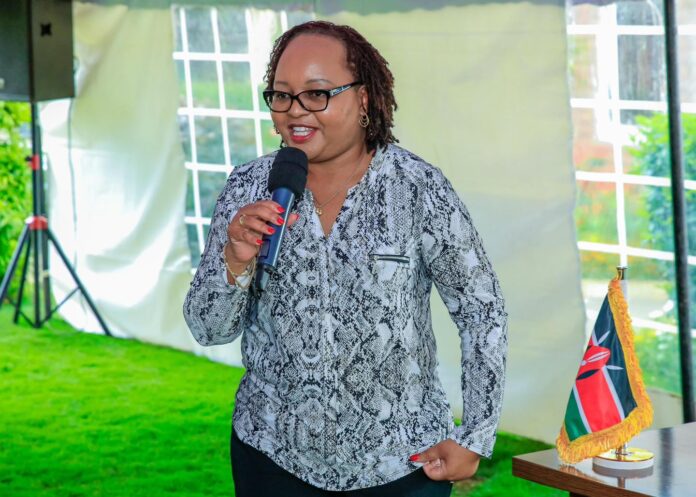Kirinyaga Governor Anne Waiguru has criticized the government over its decision to allow the importation of duty-free basmati rice.
In a statement on Thursday, October 30, Waiguru warned that the move is undermining local farmers who have invested heavily in producing Kenya’s Pishori variety.
“Our Mwea rice farmers have invested heavily to produce high-quality Pishori rice, spending about Ksh60 per kilogram. The recent decision to import duty-free basmati rice has flooded the market, pushing prices down just as farmers prepare for a bumper harvest. This threatens their livelihoods and years of progress,” she said.
Waiguru urged the national government to immediately review its policy and put local farmers at the center of its agricultural agenda.
“I once again urge the National Government to prioritize the uptake of Mwea rice as a matter of urgency and protect our farmers by supporting local production.
“Safeguarding this sector means securing thousands of households that depend on rice farming and advancing Kenya’s goal of true food security and agricultural self-reliance,” she added.
Earlier in the year, the National Treasury approved the duty-free importation of 500,000 metric tonnes of rice, effective immediately and running through to December.
The directive was announced in a Gazette notice issued by National Treasury Cabinet Secretary John Mbadi on Monday, July 28.
“It is notified for the general information of the public that, pursuant to section 114 (2) of the East African Community Customs Management Act, 2004, as read with item 20 of Part B of the Fifth Schedule to the Act, the Cabinet Secretary for the National Treasury and Economic Planning, upon recommendation by the Cabinet Secretary for Agriculture Livestock Development, directs that 500,000 metric tonnes of Grade 1 Milled White Rice be imported into Kenya duty free on or before the the 31st December, 2025,” the notice read.
The notice further directed that each consignment of the rice must adhere to both international and local food safety standards.
Additionally, all shipments are required to be accompanied by a valid Certificate of Conformity issued by the Kenya Bureau of Standards (KEBS).
Prior to this, the Ministry of Agriculture and Livestock Development had announced a Ksh500 million plan to purchase locally grown rice from farmers in the Mwea Irrigation Scheme.
In a statement on Friday, May 30, the government said it has moved to safeguard the livelihoods of thousands of farmers in Kirinyaga and neighbouring counties by absorbing surplus local rice stocks.
“To protect the livelihoods of over 8,500 rice farmers from Kirinyaga and neighbouring counties, KNTC will mop up over 5,000 metric tonnes of locally grown rice — valued at approximately Ksh500 million.
“The Cooperative will receive full payment within one month after delivery, a significant improvement on previous delays that hampered farmers’ operations and cash flow,” the statement read.
The intervention followed sustained pressure from farmers who have urged the government to suspend rice imports temporarily, citing a buildup of unsold stock.
“This move follows farmers’ calls to halt rice importation temporarily to allow for the sale of existing local stock. The Cabinet Secretary, Ministry of Agriculture and Livestock Development, Mutahi Kagwe, directed AFA to visit the region with KNTC and find a solution.
“While acknowledging the strategic need for some imports due to the national rice deficit, the Ministry recognizes the importance of supporting local production first,” the statement added.



















